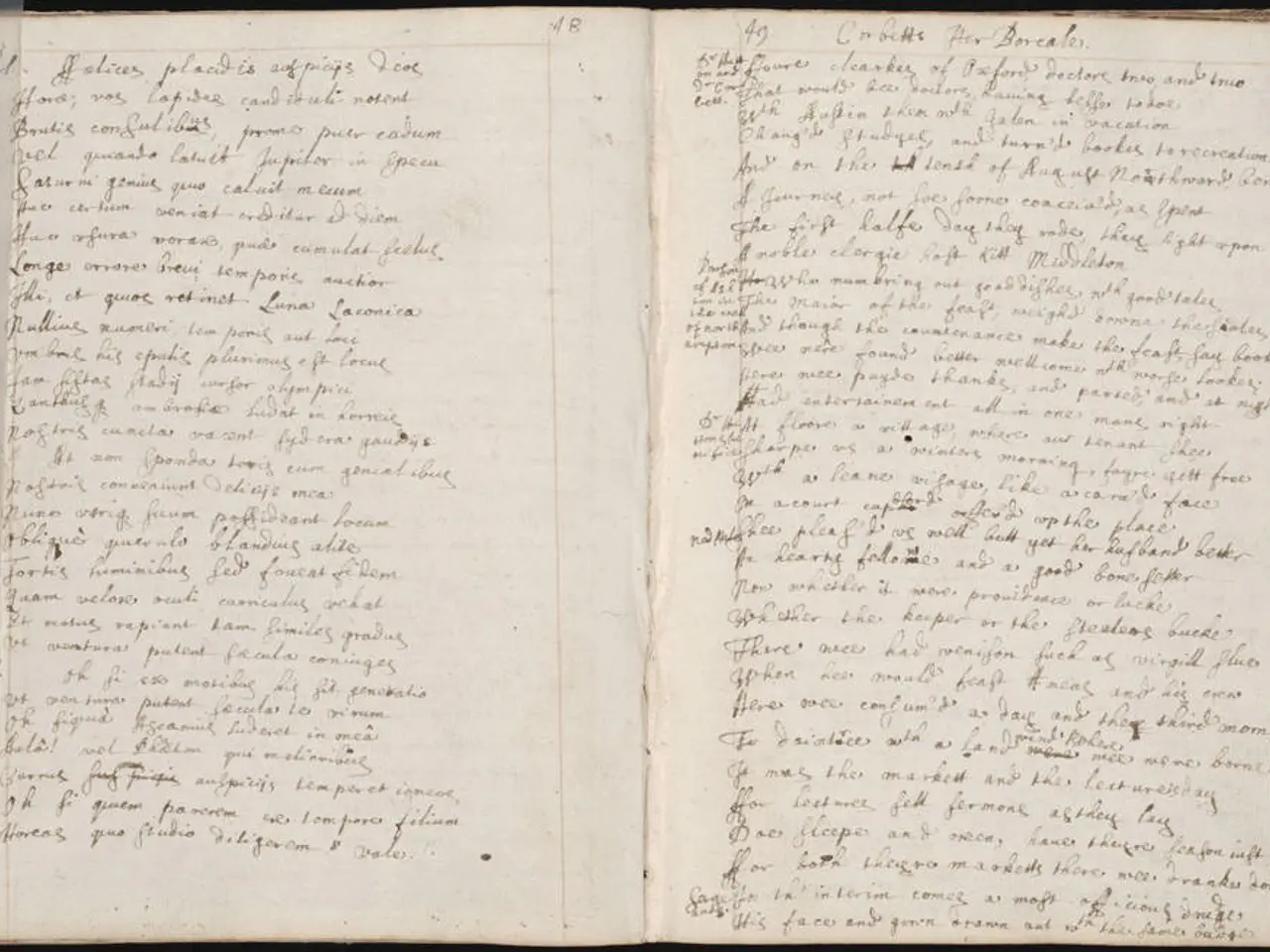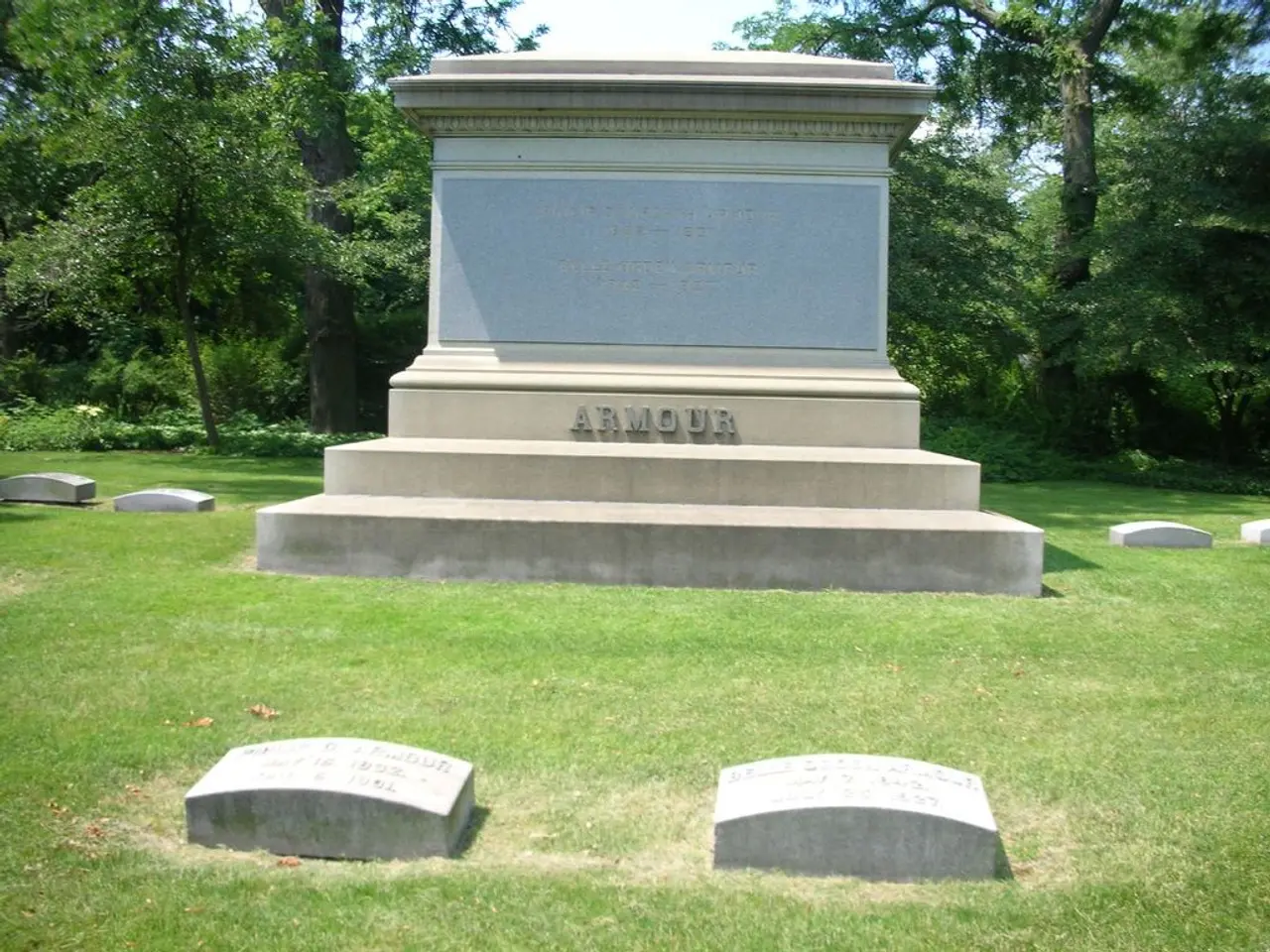Abuja Elite Dispute within PDP: 'I was Part of the Select Few' - Jerry Gana
The Peoples Democratic Party (PDP), a political institution that has been instrumental in shaping Nigeria's modern democracy, was founded in August 1998. Born out of a collective desire to end military rule, the PDP emerged as a broad coalition, uniting diverse groups such as the G-18 and G-34 who opposed the dictatorship of General Sani Abacha[1].
At the helm of the PDP were key leaders like Olusegun Obasanjo, a former military ruler turned PDP leader, and Alex Ekwueme, the first chairman. Under their guidance, the PDP quickly became the dominant political force, guiding Nigeria's transition from 16 years of military rule to civilian democratic governance starting with the 1999 elections[1].
The PDP's ideological focus was on economic deregulation, human rights advocacy, and improving funding for health and education, representing a push towards modernization and democratization in Nigeria[1]. This commitment extended deeply into the party's grassroots levels, with leaders and supporters including many local traditional authorities and community figures, creating a wide presence across Nigeria’s regions[1].
However, the PDP has not been without its challenges. Internal factionalism and defections have been notable, such as in 2013 when a major fracture diminished the party's unity[2]. Despite these trials, party leaders have emphasized the PDP’s resilience and ongoing commitment to restoring and strengthening democratic governance in Nigeria, affirming its continued presence at the center of Nigerian politics[2].
Jerry Gana, a founding member of the PDP, has emphasized that the party's enduring grassroots presence and historical significance in Nigeria's democracy have been overlooked by many critics. He underscores the PDP's role in restoring democracy and ending military rule in Nigeria, stating that the party was "as it were, a grassroots party"[3].
During his leadership, the PDP, under Jerry Gana, successfully terminated military rule in a democratic manner, winning most of the local governments, the presidency, the Senate, and the House of Representatives in the 1999 elections[4]. The crisis in the PDP, as described by Jerry Gana, was confined to Abuja and did not extend beyond a few elites[5].
In conclusion, the PDP has established itself as a foundational institution in Nigeria’s modern democracy with a significant grassroots presence sustained since 1998[1][2]. Its role in ending military rule, shaping Nigeria’s Fourth Republic political landscape, and commitment to giving power to the people make it a party of historical significance.
| Aspect | Details | |----------------------------|-----------------------------------------------------------------------------------------------------| | Founded | August 1998 by diverse groups including G-18 and G-34 opposing military dictatorship | | Key Leaders | Olusegun Obasanjo (former military ruler turned PDP leader), Alex Ekwueme (first chairman) | | Role in Democracy | Led transition from military rule to civilian democratic rule in 1999; dominant ruling party | | Ideological Focus | Economic deregulation, human rights, health/education funding | | Grassroots Presence | Broad membership from chiefs, academics, businessmen, retired military officers; nationwide reach | | Challenges | Internal factionalism and defections but maintained resilience | | Historical Significance | Instrumental in ending military rule, shaping Nigeria’s Fourth Republic political landscape |
References: [1] Soyombo, D. (2019). The PDP and the politics of survival. The Punch. Retrieved from https://punchng.com/the-pdp-and-the-politics-of-survival/ [2] Olawoyin, O. (2018). Nigeria's ruling party faces a test of political survival. Al Jazeera. Retrieved from https://www.aljazeera.com/news/2018/08/nigeria-ruling-party-faces-test-political-survival-180813131622368.html [3] Gana, J. (2018). The PDP's historical significance in Nigeria's democracy. The Guardian. Retrieved from https://guardian.ng/news/the-pdps-historical-significance-in-nigerias-democracy/ [4] Gana, J. (2018). The PDP's success in the 1999 elections. Vanguard. Retrieved from https://www.vanguardngr.com/2018/08/the-pdps-success-in-the-1999-elections/ [5] Gana, J. (2018). The crisis in the PDP is confined to Abuja. The Nation. Retrieved from https://thenationonlineng.net/the-crisis-in-the-pdp-is-confined-to-abuja/
- A spate of car accidents on a busy street in Abuja has claimed several lives, causing general concern in the city.
- The Senate in Nigeria has been deliberating on a new policy-and-legislation bill that aims to address war-and-conflicts, offering support to displaced persons navigating migration.
- Despite the recent rise in crime-and-justice incidents across Nigeria, the country's presidency has highlighted its commitment to prioritizing citizen safety and maintaining a secure environment.
- The popular online news platform, 'General News Nigeria', recently reported on an unexpected fire that broke out in a shopping mall in Lagos, causing panic among shoppers and damaging merchandise.
- In a bid to strengthen a coalition against the APC, the PDP announced an alliance with opposition parties, viewing it as a strategic move to regain political power in upcoming elections.
- A controversial move made by the PDP in the Senate has sparked public backlash, with citizens accusing the party of ignoring human rights advocacy, one of the core focuses of the party's ideology.
- Upon analyzing election results, experts noted that the PDP lost significant voter support in rural communities, which could have a potential impact on future election outcomes.
- In the face of political rivalries and conflicts, the PDP has faced internal challenges stemming from disagreements on party policies and legislation, threatening its grassroots presence.






